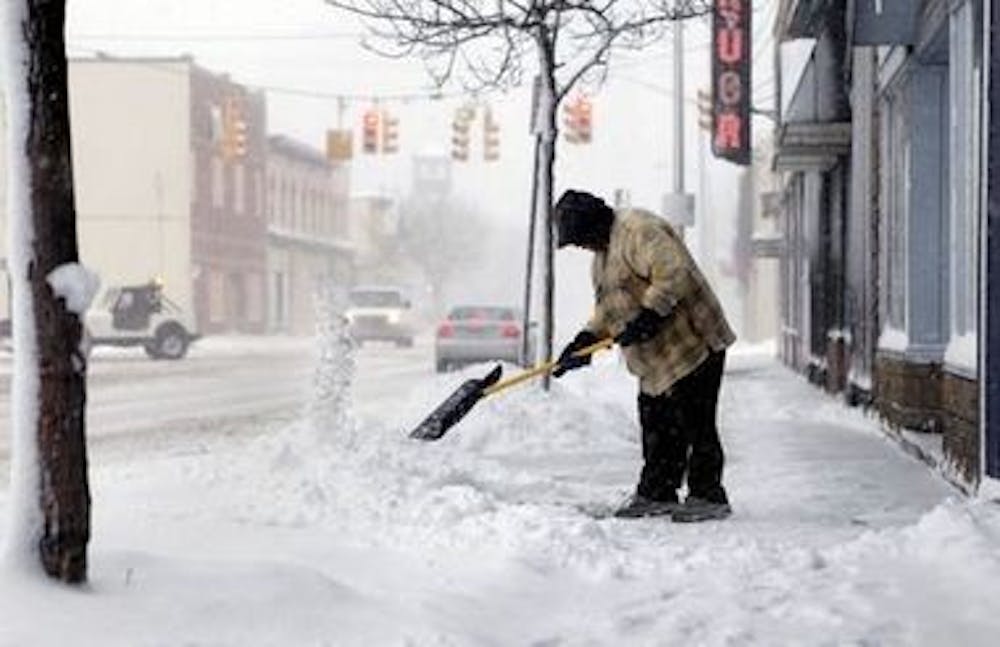By Alex Mellen

Ivan. Katrina. Andrew.
These names are infamous for belonging to some of the most devastating hurricanes in recent U.S. history.
Jove. Saturn. Virgil. Will these names follow suit?
The Weather Channel has been naming severe winter storms for the first time this year, following the longtime tradition of naming tropical storms.
Naming a large storm "raises awareness," The Weather Channel stated, helping viewers follow its progress and making the storm easier to discuss in news and conversation.
Though the National Hurricane Center has named tropical storms since the 1940s, according to The Weather Channel, no weather organization has named winter storms. The Weather Channel took on the responsibility, citing its "meteorological ability, support and technology."
Senior environmental science major Katharine Hogan says she likes the idea of naming the storms, as long as specific criteria for naming them exists.
"We have categories for hurricanes," Hogan said, "but I'm not aware of any such system for winter storms. I would want to know what constitutes as severe enough weather to be classified . . . and what is actually two or more weather fronts."
An informational video on The Weather Channel's website explains that its criteria for naming a storm include "significant impact due to snow or ice within three days" of the storm's onset, severe travel issues, and "life-threatening conditions from wind, snow, ice, and cold."
Hogan added that she likes the unusual names The Weather Channel chose for this year's storms. The list mostly draws from Roman mythology and history.
On Tuesday and Wednesday, winter storm Jove blew through Ohio and then the Northeast. The storm iced over many roads and caused "white-out conditions," according to The Weather Channel.
Not everyone wants to see a guest list for winter storms. Weather forecasting service AccuWeather released a statement in October criticizing The Weather Channel for "confus(ing) media spin with science and public safety."
Because winter storms are more erratic, AccuWeather said, "Naming a winter storm that may deliver such varied weather will create more confusion in the public and the emergency management community."
The National Weather Service also explained why it doesn't name storms. "A winter storm's impact can vary from one location to another," it told the Chicago Tribune, "and storms can weaken and redevelop, making it difficult to define where one ends and another begins. . . . We do rate major winter storms after the fact."
Junior Lisa Bartz said she likes the idea, but a name would be "silly unless it's a blizzard." She added that, unless a storm is so bad people talk about it years from now, it probably doesn't deserve to be named.
Paul Yeager, a blogger for the Huffington Post, wrote that hurricane names work because a government organization provides detailed criteria for classifying them. The Weather Channel, Yeager says, is too commercial and not respected enough to be the final word in storm classification.
Yeager mentioned that if another weather organization reports on a winter storm, it won't want to use a name created by a competitor. This will lead to more names and more confusion.





